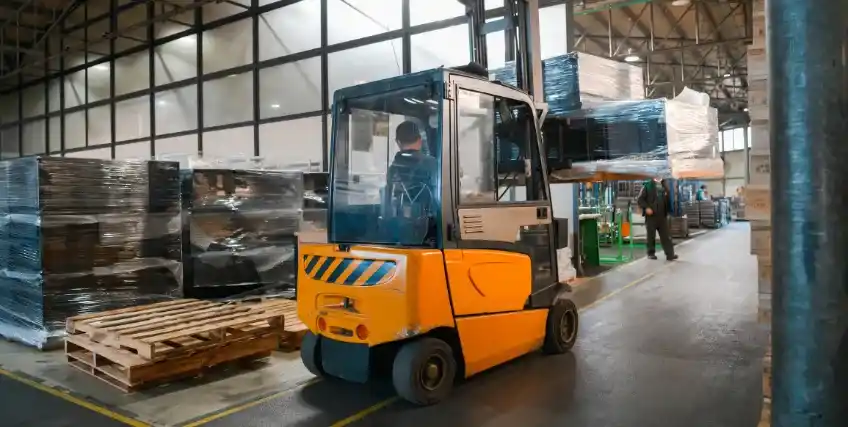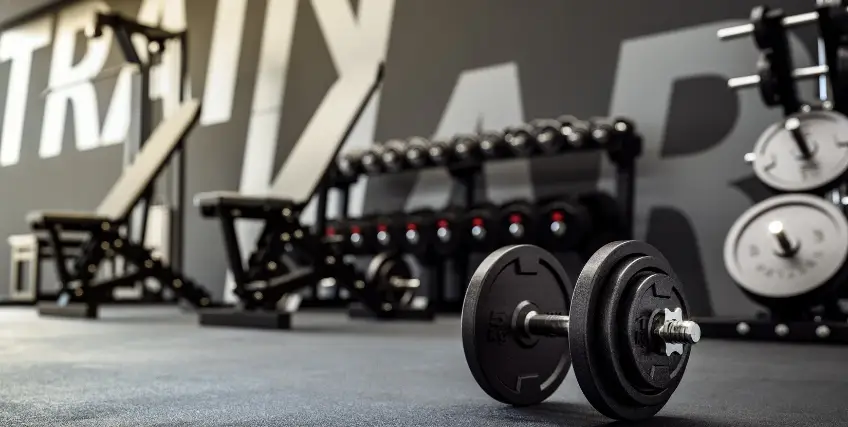Cash Flow Killers: Mistakes to Dodge when Financing Equipment
November 16, 2025 | Last Updated on: November 16, 2025

Financing equipment can be a smart move for small businesses. It helps preserve working capital and get essential tools without large upfront costs. But if done wrong, it can hurt more than help. Many business owners fall into common traps that impact cash flow and stall growth.
This article highlights key mistakes to avoid when working with equipment financing companies. From choosing the wrong product to underestimating total costs, we cover it all. Whether you run a construction firm, dental clinic, or a restaurant, understanding these risks can help you stay financially sound.
Let’s break down the real reasons businesses struggle after financing equipment—and how to avoid them.
Mistake #1: Overextending on Equipment Loans
Taking on more debt than you can repay is a common issue. Many small business owners overestimate future income or underestimate expenses.
Equipment financing companies often offer large sums with flexible financing terms. But a bigger loan means higher monthly payments. If your revenue dips, repayment becomes difficult. This puts pressure on your cash flow and can risk your entire business.
Always assess your current financials. Include all ongoing costs—payroll, rent, raw materials—before adding an equipment loan. Also, review your credit score and interest rates. Businesses with weaker credit profiles might face higher repayment burdens.
Use forecasting tools to estimate cash inflow and outflow. This helps set a safe borrowing limit. For startups, this is even more important. Equipment loans for startups should match short-term cash capabilities, not long-term projections.
Finally, check if the financing includes balloon payments or variable interest rates. These can look cheap upfront but hurt you later.
Mistake #2: Ignoring Residual Value Decline
Every piece of equipment loses value over time. But many businesses ignore this. They assume the equipment will hold value longer than it does.
This is risky. If you finance machinery for $100,000 and it's only worth $50,000 after three years, you're still paying off a depreciated asset. This mismatch affects your balance sheet and makes refinancing harder.
Equipment financing companies rarely guarantee residual value. It's up to you to do that math.
Industries like tech and food service see faster depreciation. This is why restaurant equipment leasing companies often promote short-term leases instead of long-term loans.
When financing, compare the loan duration with the expected equipment life. Avoid locking into 5-year terms for items that become outdated in 2 years.
Look for equipment leasing options with buyout clauses if you want flexibility.
Mistake #3: Underestimating Maintenance and Operating Costs
Buying equipment is just the start. Keeping it running adds more cost.
Many businesses ignore expenses like maintenance, repairs, upgrades, and operator training. This affects your cash flow and limits working capital.
Say you lease a high-end medical scanner. Monthly payments may be low. But software upgrades and servicing could cost thousands more.
Equipment financing companies don’t always cover these extras. Some equipment leasing for startups programs include maintenance, but not all do.
Factor in insurance, warranties, energy use, and consumables. These costs must be part of your budget before signing any deal.
Consider setting aside 10–15% of the equipment cost annually for upkeep. Also, ask vendors for typical post-purchase expenses.
If ignored, these hidden costs will hit when you're least prepared.
Mistake #4: Choosing the Wrong Financing Product
Not all financing options are equal. Some suit short-term needs, others long-term. Picking the wrong one affects your cash flow.
Equipment financing companies offer loans, leases, lines of credit, and vendor finance. Each has pros and cons.
Equipment loans work well when you plan to keep the asset long-term. Leases are better for fast-changing industries or expensive tech.
Startups with tight budgets may benefit from equipment leasing for startups. These often have lower upfront costs and simpler credit approval.
Compare terms before choosing. Check for fixed vs variable rates, total repayment, end-of-term options, and penalties.
Avoid locking into rigid terms that don’t match your business cycle. For example, seasonal businesses should seek flexible monthly payments or skip-payment options.
Match the financing solution with the equipment type and business need.
Mistake #5: Not Accounting for Seasonal or Irregular Revenue
Cash flow isn’t always steady. Seasonal dips or unpredictable customer demand can strain your ability to make regular monthly payments.
Industries like landscaping, catering, and tourism often deal with inconsistent cash inflow. If your equipment financing plan is rigid, you risk defaulting during lean periods.
Some equipment financing companies offer customized financing solutions, including seasonal repayment plans. These align payments with your revenue pattern, easing pressure during slow months.
You can also consider lines of credit, which offer more flexibility. This way, you borrow only what you need and repay as cash comes in.
For many small businesses, the problem isn’t profitability—it’s timing. A mismatch between payments and income can break your working capital.
Before signing any agreement, share your cash flow trends with the financing provider. They may adjust terms accordingly. You can also negotiate interest-only periods or deferred payment plans to stay afloat during downtimes.
Planning for revenue gaps is crucial. Financing should help your business run, not tie it down.
Mistake #6: Ignoring Credit Requirements and Hidden Fees
A lower credit score doesn’t mean you're ineligible—but it usually means you’ll pay more.
Equipment loans for startups and small firms often come with hidden fees. These can include application costs, processing charges, late fees, insurance premiums, and prepayment penalties.
Many equipment financing companies bundle some of these into the loan. Others list them separately, creating confusion. If you're not careful, these extras can add thousands to your total repayment.
Always ask for a complete cost breakdown before signing. Look for words like "origination fee" or "balloon payment" in the disclosures. And check if there’s a required down payment upfront.
Review your annual revenue and expense structure to make sure you can cover the full cost. And shop around. Comparing offers from different providers can reveal major differences in pricing and terms.
Use your repayment history, cash flow stability, and business performance as leverage in negotiations.
If you’re unsure, consider working with an accountant to review the offer. A second opinion can help you avoid paying more than necessary.
Mistake #7: Not Tracking ROI of Financed Equipment
Every financed piece of equipment should deliver measurable results. But many small businesses skip this step after making the purchase. Without tracking ROI, you won’t know if the equipment is actually helping your business.
Start by setting clear goals. Are you aiming to speed up production, reduce labor costs, or open new revenue streams? Choose metrics that reflect these goals.
For example, if you financed commercial kitchen gear from restaurant equipment leasing companies, track customer orders per hour or food prep time. If it’s medical machinery, look at patient throughput and billing volume.
Review ROI every quarter. Compare the cost of financing—including interest and fees—with the value the equipment brings in. If it isn’t generating returns, consider refinancing or even selling it. You may be able to redirect funds to higher-performing assets.
Equipment financing companies don’t track ROI for you. That responsibility is yours.
Use software tools or simple spreadsheets to stay on top of performance.
Smart ROI tracking ensures your business financing decisions support long-term growth—not just short-term convenience.
Quick Checklist: What to Know Before Financing Equipment
- Know your monthly cash flow.
- Get at least three quotes from equipment financing companies.
- Understand all repayment terms.
- Consider residual value.
- Estimate full lifecycle costs.
- Match payment schedule to revenue.
- Confirm credit score impact.
- Ask about tax benefits.
- Track ROI post-purchase.
Conclusion
Financing can help you grow, but only if done wisely.
Mistakes like overextending or ignoring costs hurt cash flow and stall your business. Compare equipment financing companies, review terms, and plan for the full cost of ownership.
Products like equipment loans for startups and leases can help—but they’re not one-size-fits-all.
Make smart choices now so you can keep your business running smoothly and profitably.
FAQs
What’s the best way to compare equipment financing companies?
There isn’t one single approach that works for every business. Some focus on interest rates, others on flexible terms or service support. What matters most depends on your business model and cash flow cycle. Are you a seasonal operator or running steady monthly revenue? Do you need maintenance bundled in or just basic leasing? Comparing equipment financing companies involves more than rate-shopping, it’s about aligning the offer with your actual needs.
Do restaurant equipment leasing companies offer better deals than banks?
It depends on what you value more - speed, specialization, or control. Banks might offer structured plans with lower rates, but restaurant equipment leasing companies often understand kitchen setups better. They may also offer bundled maintenance or faster approvals. So, it’s less about who’s cheaper and more about who understands your operational needs and offers flexible financing that matches them.
What are the tax benefits of equipment leasing for startups?
There could be tax savings, but they vary. Section 179 might apply to leased items, and some equipment leasing for startups programs let you deduct payments as business expenses. The catch? You’ll need to check the lease type and consult your tax advisor. Tax benefits exist but claiming them wrong could backfire. It’s worth confirming what qualifies before assuming you’ll get the full break.
How can I avoid overpaying on an equipment loan?
Avoiding overpayment isn’t just about picking the lowest rate. Look at total repayment, term length, and any hidden costs. Ask if there’s a balloon payment. Review all disclosures carefully. And compare at least three quotes from different equipment financing companies. Sometimes the lowest upfront cost becomes the most expensive over time. Being thorough saves money. If you're unsure, ask multiple equipment financing companies for sample amortization schedules so you can compare side by side.
Can I finance used equipment?
You may be able to, in some cases, but the terms might differ. Some equipment financing companies offer limited programs for used or refurbished equipment. Others may require a higher down payment or charge slightly higher rates. The condition, age, and type of equipment matter. It’s always smart to see how equipment financing companies calculate risk differently for used assets versus new purchases.
Frequent searches leading to this page
Term Loans are made by Itria Ventures LLC or Cross River Bank, Member FDIC. This is not a deposit product. California residents: Itria Ventures LLC is licensed by the Department of Financial Protection and Innovation. Loans are made or arranged pursuant to California Financing Law License # 60DBO-35839




